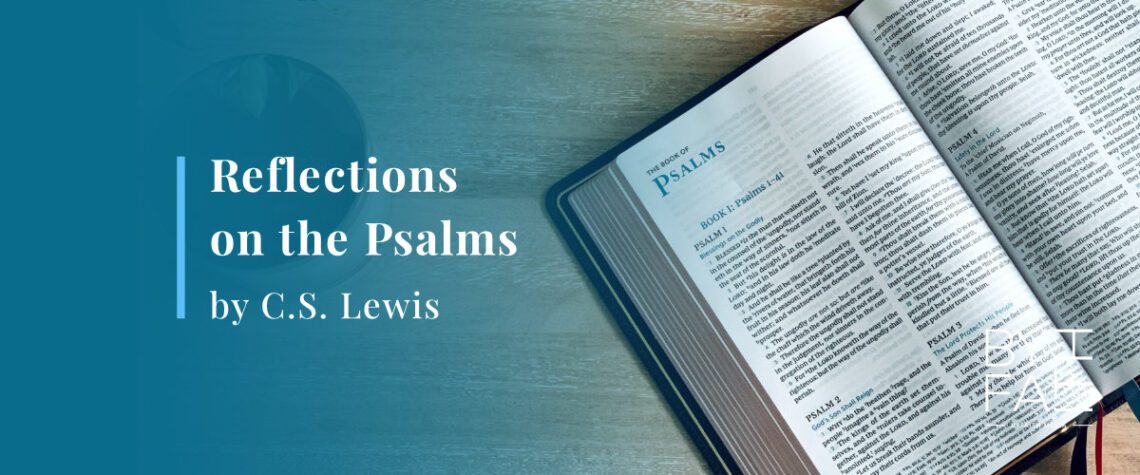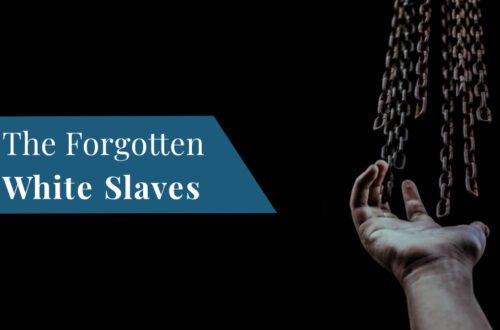
Reflections on the Psalms by C.S. Lewis: Book Review
When C.S. Lewis commenced his professorship at Cambridge University, he humbly referred to himself as a “dinosaur.” Lewis was a man from a different time, born at the end of the Victorian era, living through the Edwardian period and deeply immersed in medieval knowledge.
Jack, to his friends, observed the world through the lens of ancient Greek, Roman, Nordic and biblical thought, making him an outsider from modern society, and therefore, he could identify its echo chambers and fallacies, with the clarity of an observer from another age.
Depart from evil and do good, seek peace and pursue it
– Psalm 34:14
One of his inspirational works, Reflections on the Psalms was written from C.S. Lewis’ unique perspective. In the book, Lewis admits he isn’t a theologian or scholar of ancient Hebrew, but rather an attentive observer, sharing his thoughts and experiences about the Psalms. He doesn’t attempt to comprehensively address all aspects of the Psalms, and focuses on specific themes that piqued his interest, such as anger, self-righteousness and selfishness.
In this book, then, I write as one amateur to another, talking about difficulties I have met, or lights I have gained, when reading the Psalms, with the hope that this might at any rate interest, and sometimes even help, other inexpert readers
– Reflections on the Psalms by C. S. Lewis, P.1
As an example, C.S. Lewis employs his vast knowledge concerning the ancient world to explore how Christian approaches to Judgment Day differ from ancient Jewish thought, and then compares them to the perspectives of distinguished philosophers from Plato to Virgil. He even delves into the idea of parables and ancient myths versus historical events, and how he untangles those differences.
The ancient Jews, like ourselves, think of God’s judgement in terms of an earthly court of justice. The difference is that the Christian pictures the case to be tried as a criminal case with himself in the dock; the Jew pictures it as a civil case with himself as the plaintiff. The one hopes for acquittal, or rather for pardon; the other hopes for a resounding triumph with heavy damages. Hence he prays ‘judge my quarrel,’ or ‘avenge my cause’
– Reflections on the Psalms by C. S. Lewis, P.8
If C.S. Lewis’ Signature Classics express the mountain of his faith, his Reflection of the Psalms represents Lewis at home with friends. On my visit to his home the Kilns, I imagined him sitting by his study with other seekers of truth, talking about the meaning and his muses on these biblical passages. This is a conversation with Lewis as a friend, not a speech by him.
One could argue this is Lewis’ most personal book. This is not his edited and selective autobiography Surprised by Joy, but an intimate insight into his approach to Scripture and the way his understanding of the pre-industrial age – the world of the Bible – shapes his thinking. This is Lewis as a venerable questioner of truth. He describes his thoughts on the differences he sees between parables, ancient myths, historical events and how he untangles them. By unveiling his approach, he opens himself up to attack from aggressive believers to sceptical liberals.
Thor and Zeus also spoke in the thunder; Hermes or Iris was the messenger of the gods. But the difference, though subtle, is momentous, between hearing in the thunder the voice of God or the voice of a god
– Reflections on the Psalms by C. S. Lewis, P.64
Lewis walked a fine line between a scholarly expert and a devout believer. The envy and suspicion of his fellows and professors at Oxford erected an impenetrable wall of thorns to cease his advancement beyond being a fellow of Magdalen College. You can imagine the anger professors indulged when they saw his picture on the cover of Time Magazine in 1947 and for his defence of supernatural miracles, which they regarded as superstition. A posthumous apology has been issued for the former. The professorship at Cambridge (Oxford’s emulous frenemy), was created with the assistance of J.R.R. Tolkien for Lewis.
One who contended that a poem was nothing but black marks on white paper would be unanswerable if he addressed an audience who couldn’t read. Look at it through microscopes, analyse the printer’s ink and the paper, study it (in that way) as long as you like; you will never find something over and above all the products of analysis whereof you can say, ‘This Is The Poem.’ Those who can read, however, will continue to say the poem exists
– Reflections on the Psalms by C. S. Lewis, P.92
Reflections on the Psalms isn’t a comprehensive analysis by any means, but rather a thought-provoking examination of specific questions. At 192 pages, it’s an easy read taking roughly seven hours to complete. If you’re hoping for a signature classic, you may be disappointed; this is a talk with a friend, not a scholarly lecture. You could argue this book represents a reflection of Lewis’ approach to faith, with quotes from the Psalms, written with a straightforward approach. It’s a personal and intimate insight into the mind of a brilliant scholar seeking truth with a unique perspective.
The Devil has from the beginning tried to mislead humanity with lies. As all accomplished liars do, he makes his lies as like the truth as he can; provided they lead man astray on the main issue, the more closely they imitate truth the more effective they will be
– Reflections on the Psalms by C. S. Lewis, P.83.
- Christmas by C.S. Lewis
- Christianity and Culture
- Christianity and Art
- Christian Book Reviews
- Recent Articles
By Paul Backholer. Find out about Paul’s books here.




